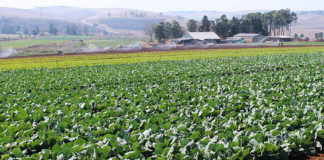Proposed by Wildlife Ranching SA, (WRSA) the Game Meat Scheme (GMS) will, among other aspects, see game farmers being trained as meat examiners for game hunted, dressed and processed on their farms before being sold for consumption. WRSA said the GMS was one of its three main projects for 2013.
The other two involved getting the SA Veterinary Council to approve game farmers’ use of the M99 tranquilliser for translocating larger game and to establish an insurance system farmers can claim from if they lose animals to bovine malignant cararrhal fever (snotsiekte) transmitted from wildebeest populations on neighbouring game ranches.
WRSA said it was working closely with the Red Meat Producers’ Organisation to encourage research on aspects such as the factors that contribute towards wildebeest-to-livestock transmission of the disease. “Taking the SA Veterinary Council to court on the M99 issue has been keeping us busy,” said WRSA manager Herman Barnard.
While game farmers did not want to take over vets’ jobs, they wanted to be able to use M99 as a management tool.
“For example, if a potentially dangerous animal breaks out of an enclosure, we can’t wait for a vet to arrive to tranquillise it,” said Barnard. “We want to be allowed to go on the same game darting courses that vets do, and the M99 must only be made available to farmers through prescriptions from their own vets.”
In even the tiniest quantities, M99 is deadly to humans and, before its use, an antidote must be ready close by for immediate administering to anyone accidentally injected by the tranquilliser. Referring to sales of game in 2012, Barnard said the more uncommon game species commanded good prices, while those for the common species, such as impala, were average, and he was looking forward to better prices during 2013.
The WRSA’s first national congress, will be held from 10 to 12 April 2013, in Modimolle, Limpopo. “We would really like our game farmers to attend the congress so that we can motivate them to participate in the Game Meat Scheme and to also be part of the green economy,” said Barnard.
“The game ranching industry already has a very low carbon footprint, and we use 50% less water than cattle farming. “These are aspects that need to be promoted to government and consumers. We do contribute to food security, even if there are people who say otherwise.”











